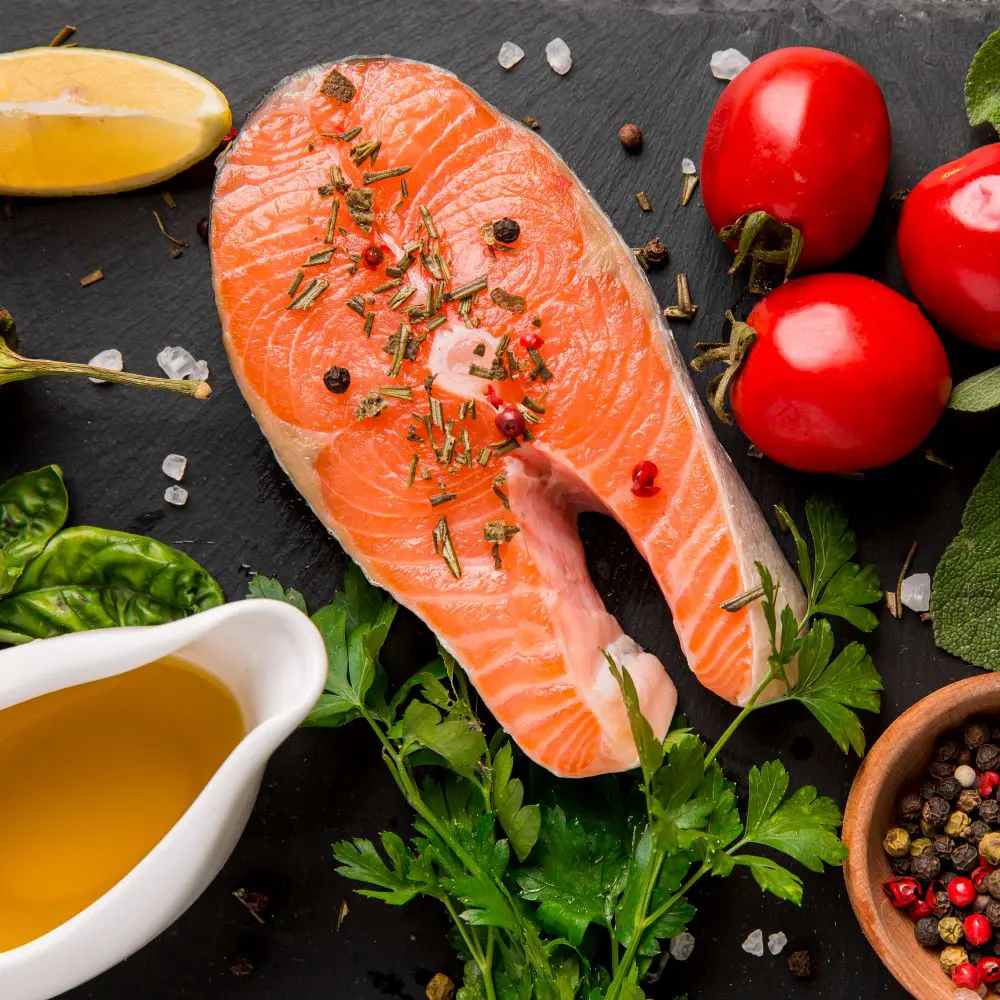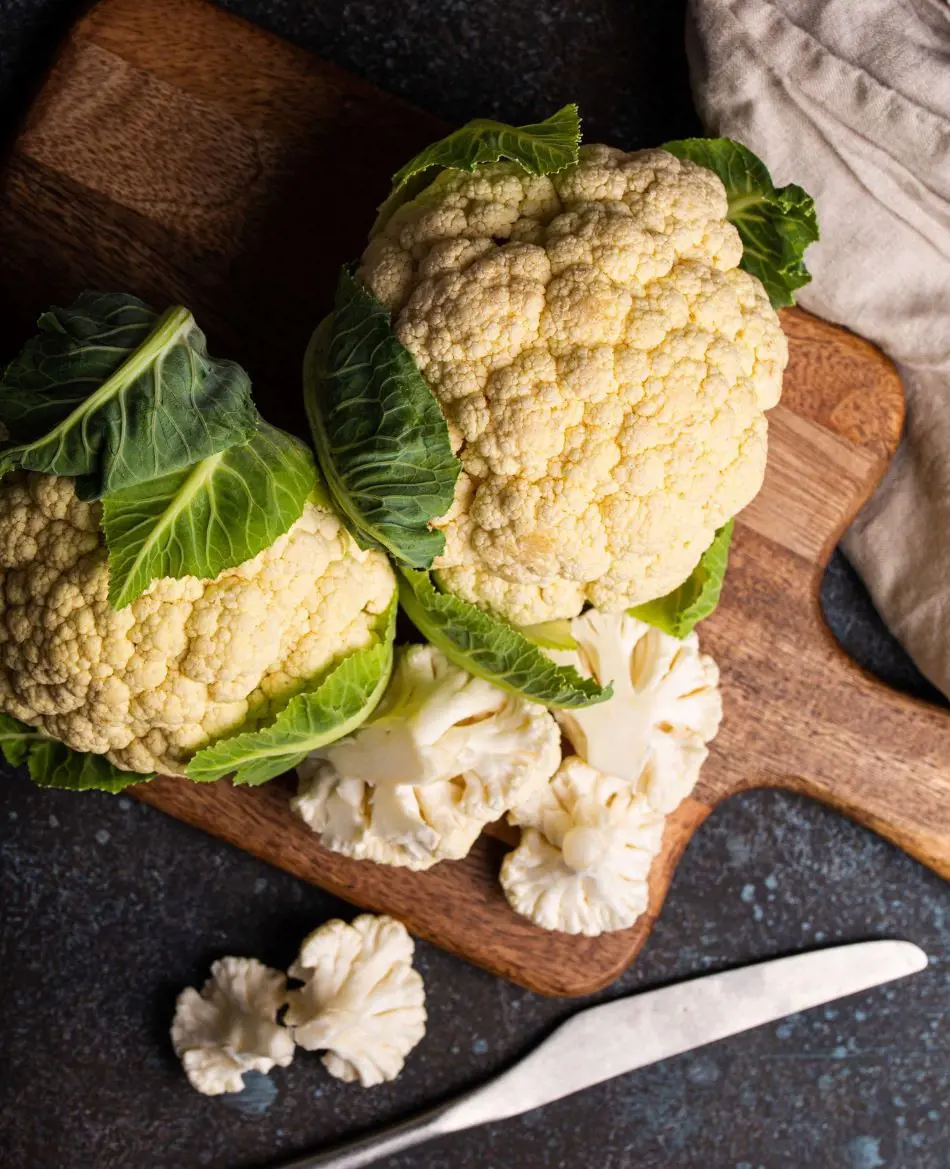20 Foods To Eat As Natural Appetite Suppressants
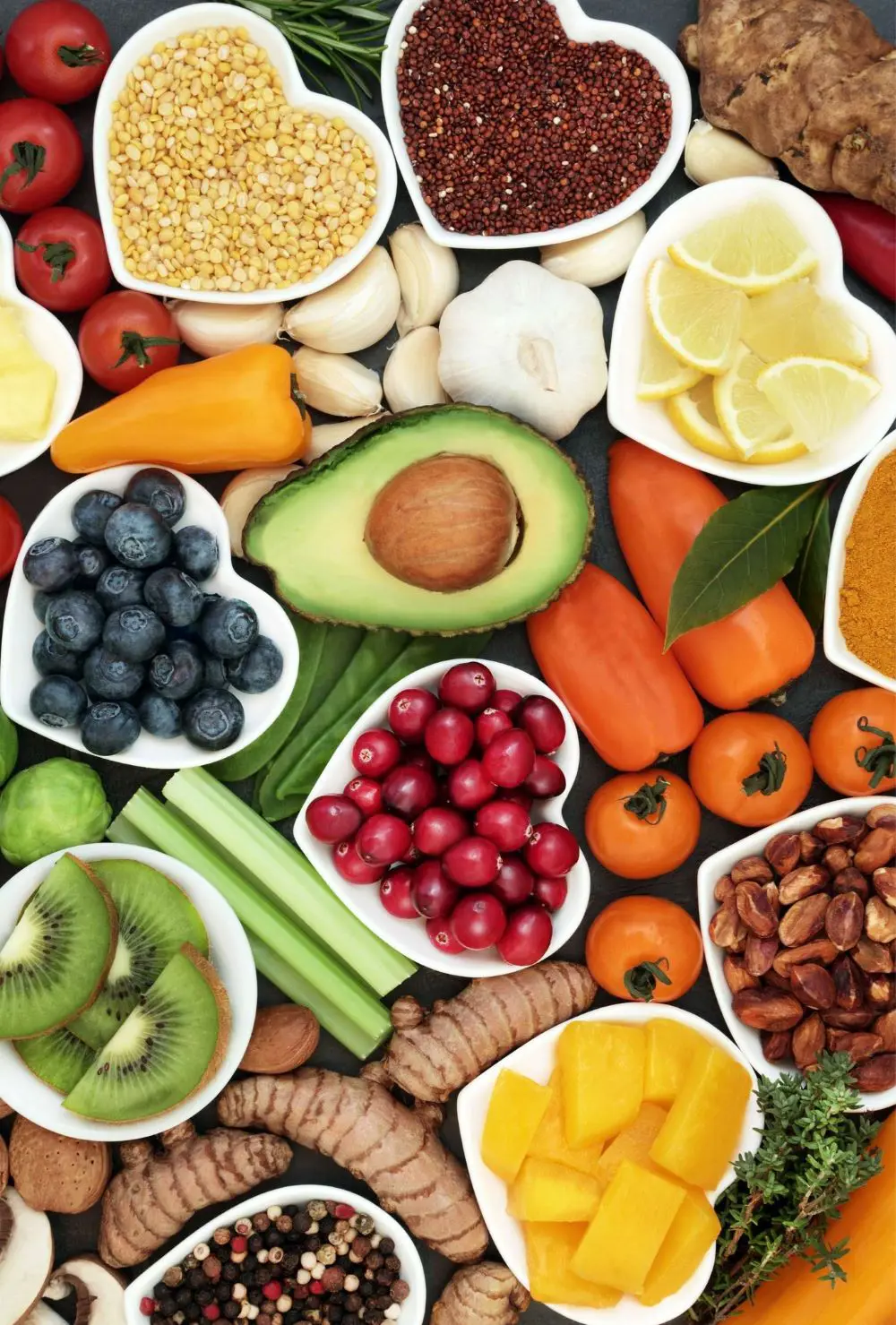
Many foods act as natural appetite suppressants, helping to manage weight and prevent overeating. These foods can reduce hunger and promote a sense of fullness without relying on artificial or processed ingredients. They work in various ways to enhance satiety, control appetite, and lower food intake, eliminating the need for prescription medications.
Nutritious and delicious, these foods support healthy eating habits by naturally curbing hunger. Think beyond bland options like rice cakes; consider nuts, spices, heart-healthy fats, and even water. Here are 20 foods that can naturally suppress your appetite.
1. Apples
Apples, regardless of their variety, can help curb appetite due to their high fiber and water content. The soluble fiber, especially pectin, slows down digestion and increases feelings of fullness. Furthermore, apples have a low glycemic index, which helps keep blood sugar levels steady and lessens hunger.
For appetite control, eat a whole apple before meals, as chewing also aids in satiety. You can also slice apples and pair them with a protein source like peanut butter for a more fulfilling snack. Avoid apple juice or applesauce, as they lack the fiber necessary for appetite control. Fresh, whole apples are the best choice for maximizing these benefits.
2. Almonds
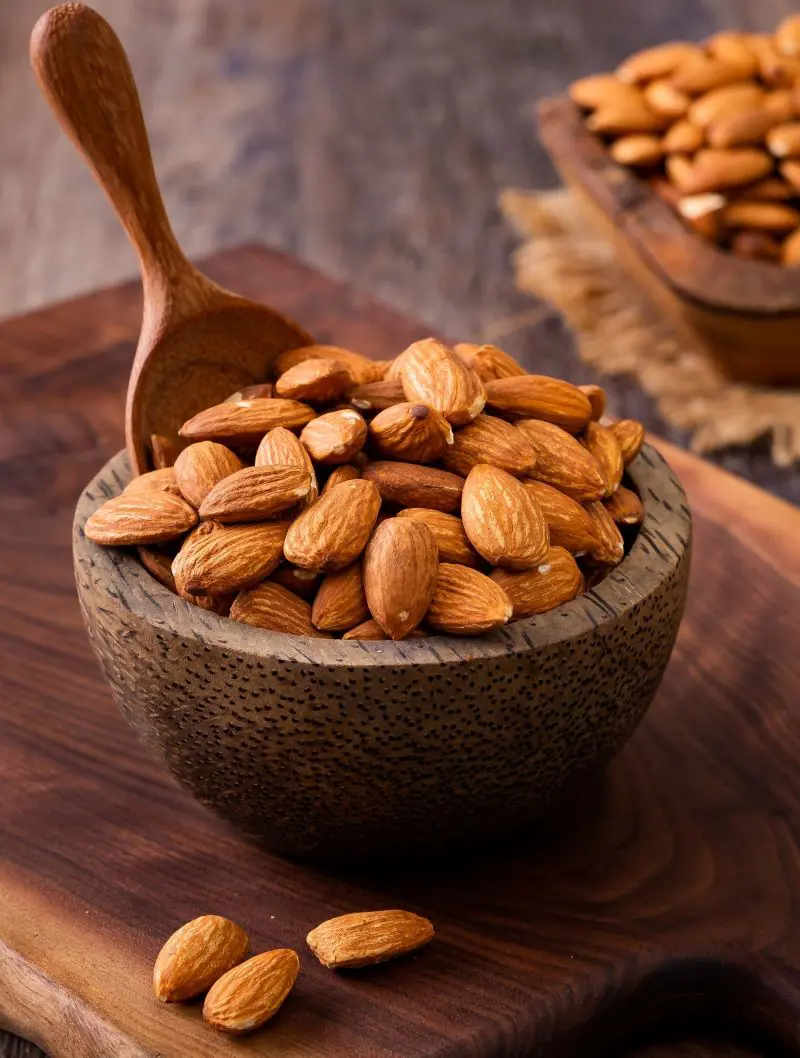
A handful of almonds, often recommended as a snack, can curb hunger and reduce cravings for less healthy options. Almonds are high in protein and fiber, with protein helping to build and repair tissues and fiber promoting a feeling of fullness by slowing digestion and stabilizing blood sugar levels.
Additionally, almonds contain healthy fats, which contribute to satiety and can prevent overeating. Their combination of nutrients makes them a satisfying choice, helping you manage portion sizes and maintain a balanced diet. Incorporating almonds into your meals or snacks can be a simple and delicious way to control appetite and support weight management.
3. Avocado

Rich in fiber and heart-healthy monounsaturated fats, avocados offer a wealth of nutrients. They help reduce cholesterol, stabilize blood sugar, support digestion, and strengthen bones. When consumed in moderation, they can help suppress appetite.
Research published in Nutrients found that participants who ate a meal with either half or a whole avocado felt fuller compared to those who ate a carbohydrate-rich meal. The study also measured hormones linked to fullness in the participants' blood and found higher levels after consuming avocado.
4. Oatmeal
Oatmeal acts as a natural appetite suppressant due to its rich content of soluble fiber, particularly beta-glucan. This type of fiber forms a gel-like substance in the stomach, which slows down digestion and promotes a prolonged feeling of fullness. As a result, oatmeal helps regulate blood sugar levels and reduces cravings.
Its slow-digesting properties keep hunger at bay, making it an ideal choice for breakfast or snacks. Plus, oatmeal's complex carbohydrates provide sustained energy and prevent spikes in blood sugar, which can lead to overeating. Enjoy oatmeal by cooking it with water or milk and adding toppings like fruit, nuts, or honey for extra flavor and nutrition.
5. Greek Yogurt
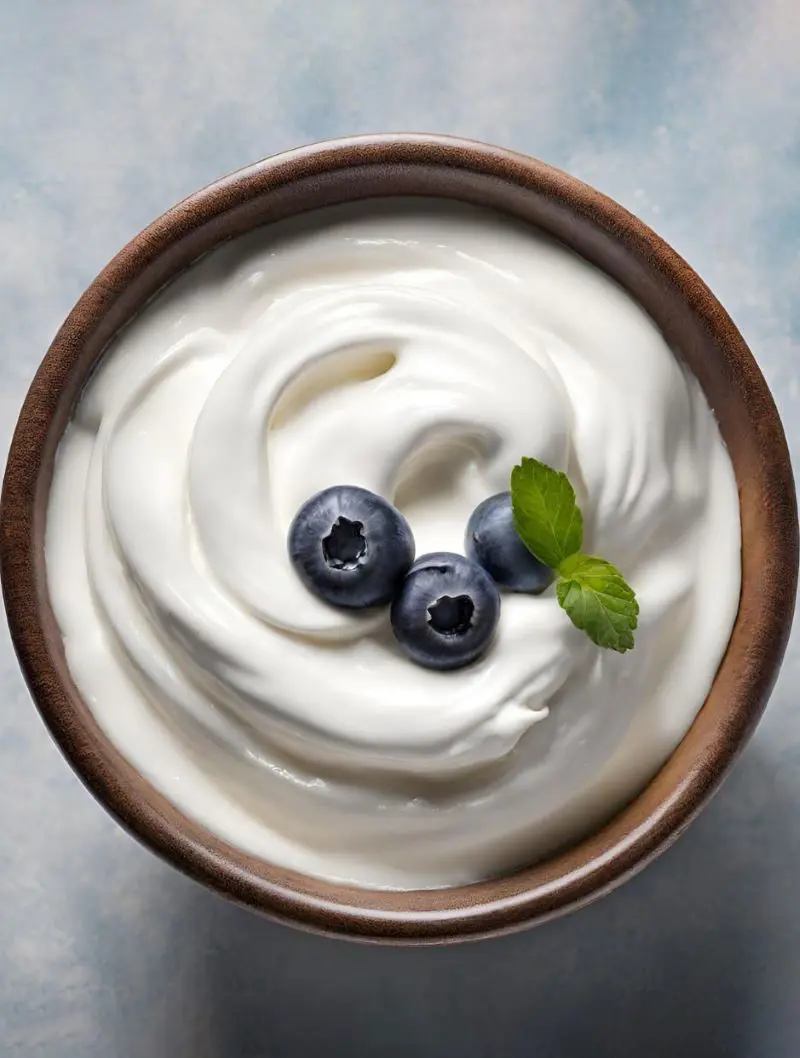
Greek yogurt is another excellent source of protein, with 100 grams providing about 10 grams of protein. This helps boost satiety by increasing the release of hormones like peptide YY and GLP-1, which signal fullness to the brain. Its low glycemic index also helps keep blood sugar levels stable, preventing the rapid spikes and crashes that can trigger hunger.
These qualities make Greek yogurt a natural appetite suppressant. Additionally, Greek yogurt is rich in probiotics that promote gut health, which may further influence appetite regulation. Enjoy it as a standalone snack, mix it with fruit or nuts, or use it as a base for smoothies and dressings.
6. Leafy Greens
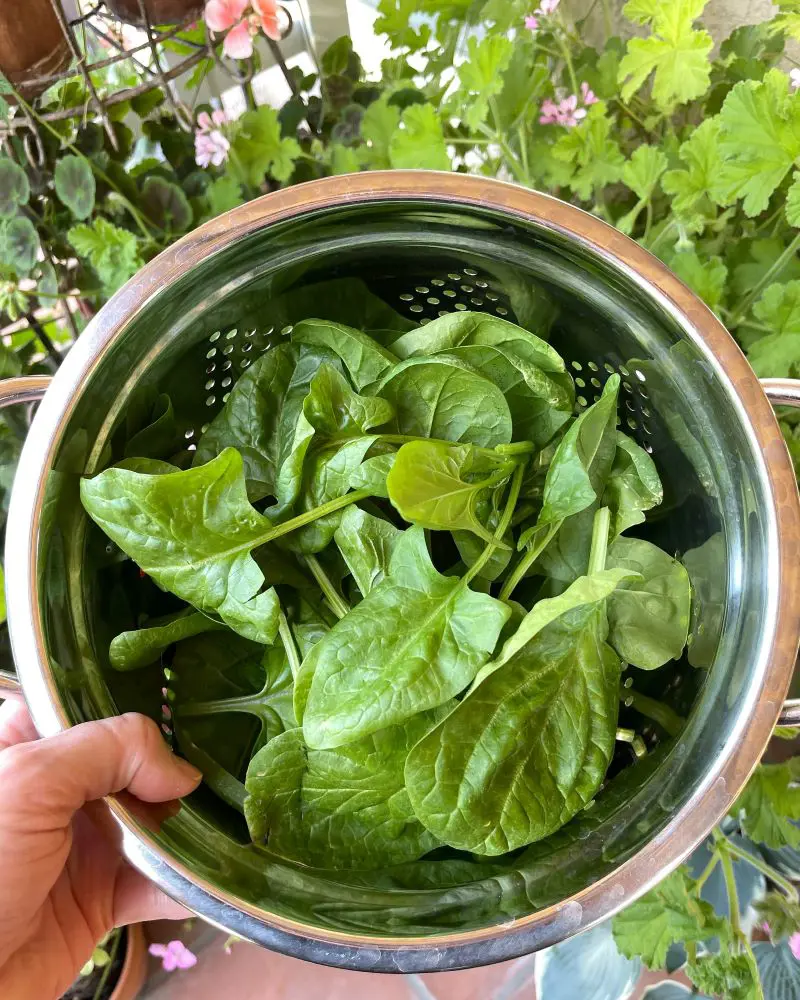
Leafy greens, such as spinach, kale, and Swiss chard, are nutrient-dense vegetables rich in vitamins A, C, and K, as well as fiber. Their high fiber content helps suppress appetite by promoting a feeling of fullness and stabilizing blood sugar levels. The fiber in leafy greens slows digestion, reducing hunger and curbing overeating.
They are also low in calories, making them an excellent choice for weight management. Consider adding them to salads, smoothies, or wraps. You can also saute them with garlic and olive oil for a flavorful side dish, blend them into soups, or use them as a base for grain bowls.
7. Chia Seeds
Chia seeds are exceptionally high in fiber, with 100 grams containing 34.4 grams of fiber. This high fiber content adds bulk to meals, enhancing satiety, slowing digestion, and delaying the release of glucose into the bloodstream. Essentially, chia seeds support metabolic function and help curb food cravings, both of which are important for weight loss and management.
Chia seeds are also a great source of plant protein, crucial for muscle growth, blood sugar regulation, and fat burning. The protein content helps you stay full longer, reduces appetite, and thereby lowers overall calorie consumption.
8. Flaxseeds
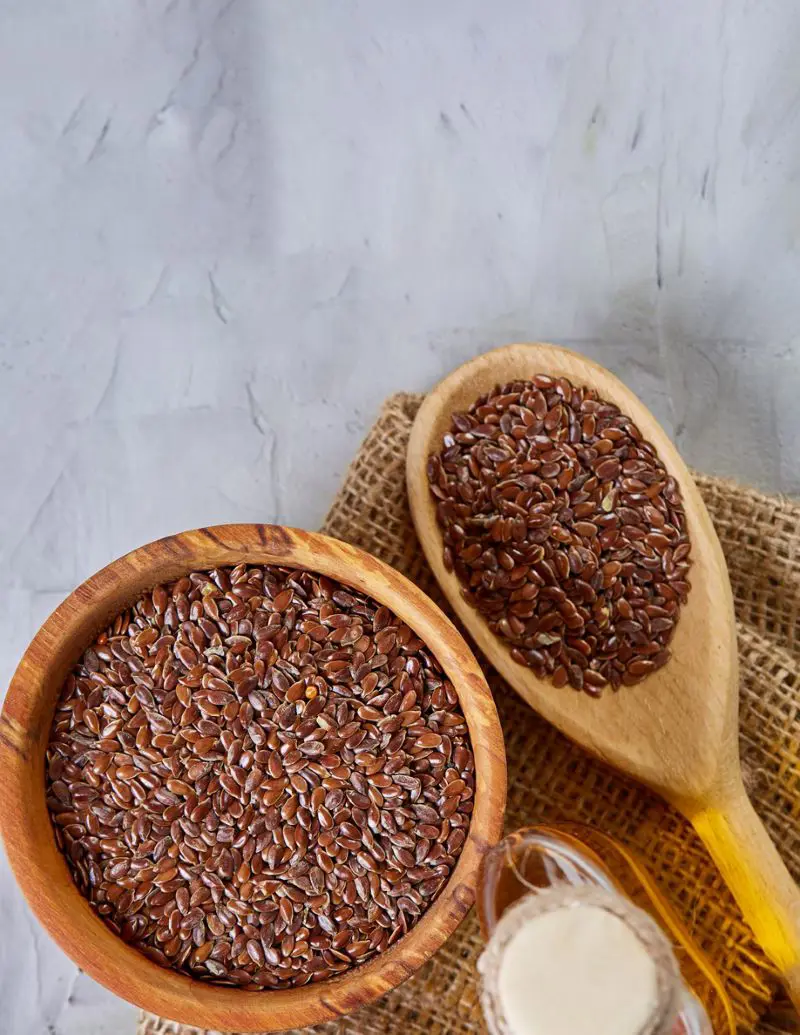
Flaxseed is packed with two natural appetite suppressants: omega-3 fats and fiber. A tablespoon of whole flaxseed contains 3 grams of fiber and about 4 grams of beneficial fat. The fiber in flaxseed helps keep you satisfied and full without adding extra calories.
The fat in flaxseed can help slow the rise in blood sugar when consumed with carbohydrate-rich foods, avoiding the hunger and irritability associated with rapid blood sugar fluctuations. Maintaining steady blood sugar levels can positively impact appetite.
To easily incorporate flaxseed into your diet, try adding a tablespoon of ground flaxseed to your morning cereal or smoothie, or sprinkle it on yogurt. You can also mix ground flaxseed into waffle or pancake batters as a flour substitute.
9. Vegetable Soup

Hot vegetable soups, whether broth-based, chunky-pureed, chunky, or pureed, can effectively curb hunger with minimal calories. Consider having a cup before your next meal or a large bowl for lunch. These soups are high in water and fiber; the water increases the soup's volume without adding many calories, making you feel fuller without excess calorie intake.
The fiber from vegetables like carrots, celery, and tomatoes slows digestion, helping you stay satisfied longer. To boost the appetite-suppressing benefits, incorporate a variety of vegetables and add herbs and spices for added flavor without extra calories.
10. Sweet Potatoes
Sweet potatoes can be a beneficial addition to a diet aimed at naturally curbing appetite. Rich in dietary fiber, particularly soluble fiber, sweet potatoes help promote a feeling of fullness and reduce overall hunger. Moreover, they are packed with essential nutrients like vitamins A and C, which support overall health and well-being.
Their complex carbohydrates release energy gradually, helping to sustain satiety over a longer period. Including sweet potatoes in meals can therefore help manage appetite and potentially aid in weight management. To maximize their appetite-suppressing benefits, consider incorporating them into balanced meals alongside protein and healthy fats.
11. Eggs
Eggs are a potent natural appetite suppressant due to their high protein content. Protein is known to promote satiety, meaning it helps you feel fuller for longer. The amino acids in eggs, particularly leucine, work to regulate hunger hormones, reducing cravings.
Studies have shown that people who consume eggs for breakfast tend to eat fewer calories throughout the day compared to those who opt for carb-heavy options. For maximum appetite control benefits, enjoy eggs cooked in a healthy way, such as boiled, poached, or scrambled with minimal added fats.
12. Water

Feeling hungry even after breakfast? It might actually be thirst. Increasing your water intake, even by just an extra glass a day, can significantly impact your appetite, skin health, and digestion. Drinking water before meals helps fill your stomach, reducing overall food intake and creating a feeling of fullness, which can lead to consuming fewer calories throughout the day.
To manage your appetite and avoid mistaking thirst for hunger, try drinking a large glass of water about 30 minutes before meals. Additionally, incorporating water-rich foods like juicy fruits and crisp vegetables into your diet can further enhance hydration and help you feel satisfied longer.
13. Green Tea
If you're not a coffee drinker and find plain water boring, consider trying a natural appetite suppressant tea. Green tea, rich in antioxidants and polyphenols like epigallocatechin gallate (EGCG), may help manage hunger by influencing metabolic processes.
The catechins in green tea can boost metabolism and increase fat oxidation, potentially leading to a reduced appetite. However, while green tea can support appetite control, it’s not a cure-all. Combining it with healthy eating habits and regular exercise is crucial for effective weight management and overall well-being.
14. Dark Chocolate

Rich in polyphenols and flavonoids, dark chocolate can help regulate appetite and enhance satiety. Its antioxidants may support metabolism and control hunger hormones. Additionally, the moderate caffeine content in dark chocolate can boost energy levels and potentially reduce cravings.
To effectively use dark chocolate as an appetite suppressant, choose varieties with at least 70% cocoa content for maximum benefits. Consuming a small piece, about 1-2 ounces, can help curb hunger and provide a satisfying treat. Opt for a piece after meals or as a mid-afternoon snack to help control appetite, but be mindful of portion sizes to avoid excessive calorie intake.
15. Ginger
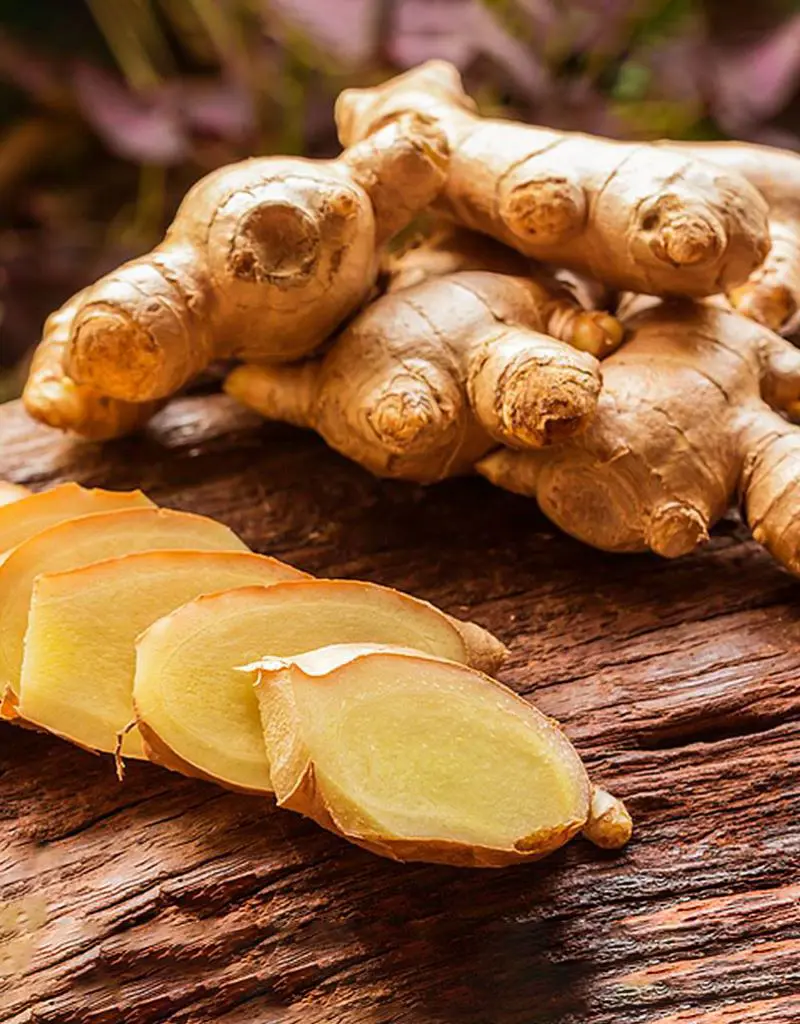
Ginger has long been celebrated for its remarkable health benefits, particularly for digestion. Its active compounds, like gingerol and shogaol, have been shown to improve digestion and lessen hunger. By helping to regulate blood sugar levels, ginger can reduce cravings and prevent overeating.
Its warming effect may also boost metabolism and aid in fat digestion. A common way to enjoy ginger’s benefits is by drinking ginger tea, which involves steeping fresh ginger slices in hot water. You can also add grated ginger to smoothies, salads, or soups to enhance flavor and increase satiety.
16. Tofu
A rich plant-based protein source, tofu is beneficial for everyone, not just vegetarians! To easily incorporate tofu into your diet, try adding it to your next healthy stir-fry or grain bowl with vegetables. Tofu can act as an appetite suppressant due to its high protein content and low-calorie density.
It is rich in essential amino acids that promote satiety and help maintain muscle mass. The protein in tofu also helps stabilize blood sugar levels, which can reduce cravings and prevent sudden spikes in hunger. Additionally, tofu's fiber content contributes to a feeling of fullness and supports digestive health.
17. Coffee

Studies indicate that caffeine in coffee can aid in weight loss by increasing calorie burn, enhancing fat breakdown, and reducing appetite. Consuming caffeine 0.5 to 4 hours before a meal may affect stomach emptying, appetite hormones, and hunger levels.
However, be aware that excessive caffeine intake can raise blood pressure in some individuals and lead to feelings of jitteriness and anxiety. While drinking more than one or two cups of coffee a day may cause these effects, moderate consumption can be beneficial, helping to boost metabolism and reduce appetite.
18. Yerba Mate
Yerba mate is a South American tea made from the leaves of the Ilex paraguariensis plant. It contains caffeine, theobromine, and polyphenols, which can boost metabolism and enhance feelings of fullness, acting as a natural appetite suppressant. Yerba mate also has saponins that may contribute to appetite reduction.
Generally safe for most people when consumed in moderation, yerba mate can cause side effects like insomnia or digestive issues if consumed excessively. To prepare yerba mate, steep the dried leaves in hot water using either a traditional gourd and bombilla (straw) or a tea infuser.
19. Fenugreek
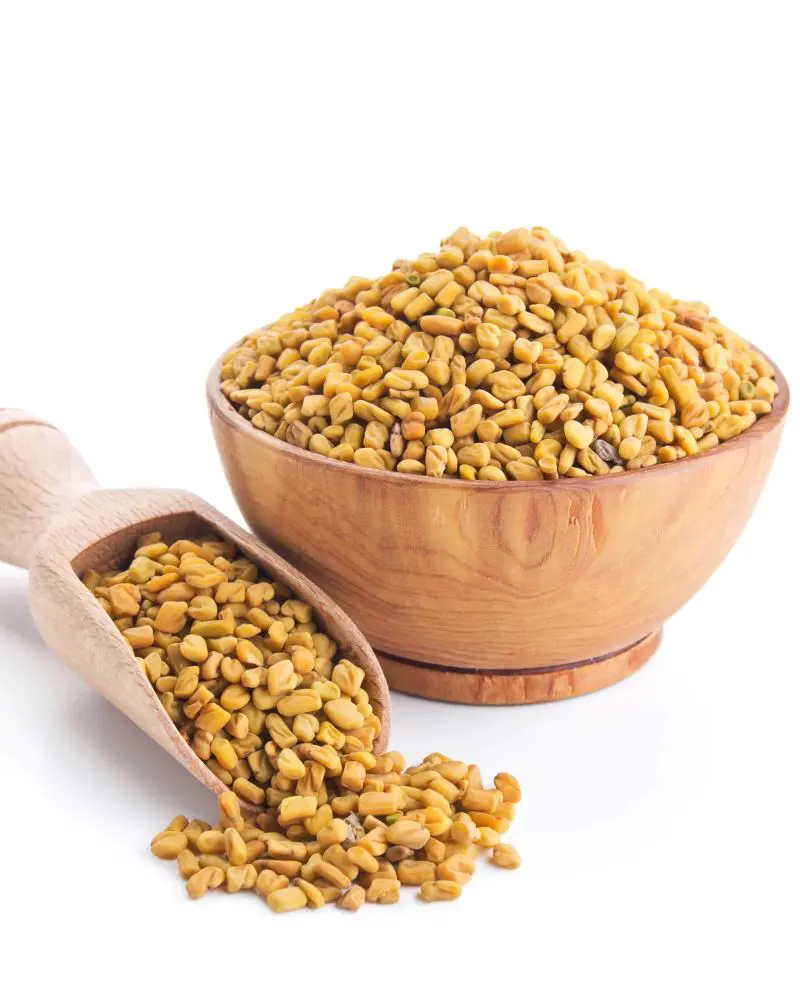
Fenugreek is an herb from the legume family, with its dried and ground seeds being the most commonly used part. It contains both soluble and insoluble fiber, which can increase feelings of fullness and lead to reduced food intake. This fiber also supports digestive health, contributing to a more balanced appetite.
Additionally, fenugreek might influence hormones related to hunger and satiety, further aiding appetite control. It can be used in the form of seeds, powder, or supplements. Adding it to meals or taking it as directed can be effective, but it's important to use fenugreek in moderation and consult with a healthcare provider before starting any new supplement.
20. Cinnamon

Here's a simple method to make your meals naturally curb your appetite: the next time you have oatmeal, cereal, fruit, or even coffee, add a sprinkle of cinnamon. It can help manage appetite by stabilizing blood sugar levels, which may prevent sudden hunger and decrease cravings.
Cinnamon also improves insulin sensitivity, leading to more balanced blood sugar levels and potentially reducing appetite. Furthermore, its unique compounds, like cinnamaldehyde, can boost metabolic function and support overall metabolic health.
Recent posts
Nutrition
Nutrition
Licorice Root: Benefits And Uses
You can spell it liquorice or licorice; this herb or root has been in use for centuries in most medicinal applications, as a natural sweetener and to enhance flavors. Regarding its origins, it comes from the root of the "Glycyrrhiza galbre" plant and...
Nutrition
Is Salmon Good For You? Nutritional Facts and Benefits
Salmon fish is a staple diet throughout the world, popular as a super food for its nutrients. Whether savored in sushi, poached, grilled, roasted, or pan-fried, salmon offers minerals and vitamins that contribute to healthy bodily functions. In addit...
Nutrition
25 Smoked Salmon Recipes That You Will Enjoy
Salmon is a silver-colored fish that is loaded with many nutrients, vitamins, and omega-3 fatty acids. Smoked Salmon is better for improving your health and reducing the risk of cancer, heart-related diseases, fights inflammation, reduces anxiety and...
Nutrition
Are Sausages Healthy? Nutrition And Health Benefits
Sausages are tasty in an addictive way, making them one of the most popular foods worldwide. You may have enjoyed this convenient food often, whether on a bun with mustard or grilled on a barbecue, the simple preparation methods are what makes its co...
Nutrition
20 Vegetables That Are Rich In Iron
Iron is essential for our bodies to function well. When we don't get enough iron, we often feel weak and tired. It's important to address iron deficiency early by eating the right foods. Fortunately, many vegetables are rich in iron and can help prev...
Nutrition
15 Cauliflower Nutrition Facts And Health Benefits
Cauliflower, a cruciferous vegetable, resembles a white variation of its relative, broccoli. Like broccoli, it has closely bunched florets attached to a thick core, often surrounded by a few leaves. While white is the most common color, cauliflower i...

